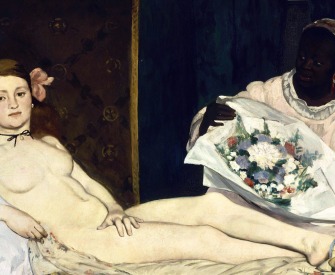Every man, says a philosopher, is a wanderer at heart. Alas! I fear the axiom would be truer if he had confined himself to stating that every man loves to fancy himself a wanderer, for when it comes to the point, there is not one in a thousand who can throw off the ties of civilized existence—the ties and the comforts of habits which have become easy to him by long use, of the life whose security is ample compensation for its monotony. Yet there are moments when the cabined spirit longs for liberty. A man stands a-tiptoe on the verge of the unknown world which lures him with its vague promises; the peaceful years behind lose all their value in his dazzled eyes; like him, “qui n’a pas du ciel que ce qui brille par le trou du volet,” he pines to stand in the great free sunlight, the great wide world which is all too narrow for his adventurous energy. For one brief moment he shakes off the traditions of a lifetime, swept away by the mighty current which silently, darkly, goes watering the roots of his race. He too is a wanderer like his remote forefathers; his heart beats time with the hearts long-stilled that dwelt in their bosoms, who came sweeping out of the mysterious East, pressing ever resistlessly onward till the grim waste of Atlantic waters bade them stay. He remembers the look of the boundless plain stretching before him, the nights when the dome of the sky was his ceiling, when he was awakened by the cold kisses of the wind that flies before the dawn.
Many hundreds of miles away, to the southward of the Caspian Sea, lies a country still untraversed by high road or railway line. Here rise mountains clothed in the spring with a gay mantle of crocuses and wild tulips, but on whose scorched sides the burning summer sun leaves nothing but a low growth of thorns; here are steep valleys where the shadows fall early and rise late, strewn with rocks, crowned with fantastic crags, scarred with deep watercourses; here the hawks hover, the eagle passes with mournful cry, and the prisoned wind dashes madly through the gorge. Here lie reaches of plain bounded on all sides by the mountain wall, plateau after thorny plateau—a rolling wilderness over which the headlands stand out as over a sea. Through the middle of the plain flows a river, its stony bed cut deep into the earth; silver trout leap in its pools, strips of grass border it—stretches of pastureland in the midst of the desert—flocks of goats feed along its banks, and from some convenient hollow rises the smoke of a nomad camp.
For beautiful as it is in its majestic loneliness, this country is not one where men are tempted to seek an abiding dwelling. In the spring, when the fresh grass clothes the bottom of the valleys, in the summer, when the cool winds sweep the plain, they are content to pitch their tents here; but with the first nip of autumn cold they strike camp and are off to warmer levels, leaving the high, snow-carpeted regions empty of all inhabitants but the wild goats and the eagles. Today, perhaps, the gloomiest depth of a narrow gorge, which looks as though from the time of its creation no living thing had disturbed its solitude, is strewn with black tents; flocks of horses and camels crop the grass by the edge of the stream, the air is full of the barking of dogs and the cries of women and children. But tomorrow no sign of life remains—the nomads have moved onward, silence has spread itself like a mantle from mountain to mountain, and who can tell what sound will next strike against their walls?
The sight fills you at first with a delightful sense of irresponsibility. Go where you will, the rocks will retain no impress of your footsteps; dwell where you please, the mountains are your only witnesses, and they gaze with equal indifference on your presence and on your absence. But the fitfulness of human habitation among them, the absence of any effect to civilize them, to make them shelter man and minister to his wants, gives them an air of stubborn hopeless sterility, very imposing, very repelling. Gradually, the loneliness will strike into your heart with a feeling almost akin to horror. We are not accustomed to finding ourselves face to face with nature. Even the most trivial evidences of the lordship of man afford a certain sense of protection—the little path leading you along the easiest slope, the green bench selecting for you the best view, the wooden fingerpost with zum wasserfall written up upon it in large letters telling you what other men have thought worth seeing. Other men have been there before—they have smoothed out the way for you—you will find them waiting at the end, and ready to provide you with shelter and food… But here there is nothing—nothing but vast and pathless loneliness, silent and desolate.

Swedish scientist Salomon Andrée and Knut Frænkel with crashed balloon only two days after their July 1897 departure to chart the North Pole, photograph by third expedition member Nils Strindberg. In 1930, film documenting the trip was found with the explorers’ bodies on Kvit Island.
For the nomads can no more give you a sense of companionship than the wild goats; they are equally unconscious of the desolation which surrounds them. All day long the men lie before the low doors of their tents lazily watching the grazing herds; toward evening, perhaps, they will stroll along the banks of the river with bent stick for fishing rod, dropping a skillful line into the pools where lie the guileless trout of those waters. Meantime the women sit weaving the coarse black roofs which shelter them, or twisting the yellow reeds into matting for walls, working so deftly that in an incredibly short time a new dwelling has grown under their fingers. In the clear sunlight the encampment looks sordid enough; night, which with sudden fingers sweeps away the sun, revealing the great depths of heaven and the patined stars, reveals also the mysterious picturesqueness of camp life. The red light of the fires flickers between the tents; the crouching figures of men and women preparing the evening meal seem to be whispering incantations into the hot ashes. They rise, dim and gigantic, with faces gleaming in the uncertain starlight; they flit like demons backward and forward between the glowing rays of the fires and the darkness beyond. You find yourself transplanted into a circle of the Inferno, of which the shaggy dogs that leap out barking to meet you are no less vigilant guardians than Cerberus himself. A woman with neck and breast uncovered catches you by the sleeve and offers to sell you a bowl of clotted cream or a vociferous fowl; her dark eyes glisten through the dusk as she tosses the matted hair from her forehead; perhaps if you stayed to eat at the bidding of this Queen of Dis you would be kept eternally a prisoner in her mournful domains. With the dawn the mystery vanishes—the place through which you passed last night is only a dull little camp after all—and this woman clothed in dirty rags, is it possible that she can be the regal figure of last night?
But the nomads are not the only inhabitants of the valley; there are one or two more luxurious encampments. An Indian prince has pitched his camp there and greets you as you pass, fishing rod in hand, with an amicable “Good-evenin’, sar.” His scanty English, confined though it be to this one salutation, somewhat destroys the local color of the scene. Noble Persians fly in the summer to this cool retreat, pitching elaborate tents of French or Indian manufacture by the edge of the river, stabling thirty or forty horses in the open air, riding through the country attended by an army of servants whom they carry with them even on their fishing expeditions, and who follow close behind their masters when they venture waist-high into the stream in the enthusiasm of sport. The grandees bring their women with them; white-canvas walls enclose the tents of wives and daughters whom captivity holds even in these free solitudes—and their Negro attendants are familiar figures by the river sallows, where their shrouded forms hover sadly. They understand camp life, these Persian noblemen; they are as much at home among the mountains as in their gardens and palaces. Their lavish magnificence is not out of keeping with the splendors of nature… But you are only playing at nomads, after all, and when the moonlight strikes the wall of rock behind your camp, you try to banish from your mind the recollection of painted theater scenes which it involuntarily suggests, and which makes it all seem so unreal to you.
Unreal—unreal! “The fancy cannot cheat so well as she is famed to do.” In vain you try to imagine yourself akin to these tented races, in vain you watch and imitate their comings and goings; the whole life is too strange, too far away. It is half vision and half nightmare; nor have you any place among dwellers in tents. Like the empty bottles and greased papers with which a troop of bank-holiday philistines sullies the purity of a purple moor, your presence is a blot on the wild surroundings, a hint of desecration.
Return to your cities, to your smooth paths and ordered lives—these are not of your kindred. The irretrievable centuries lie between, and the stream of civilization has carried you away from the eternal loneliness of the mountains.
From Persian Pictures. After graduating from Lady Margaret Hall, Oxford in 1887, Bell traveled extensively throughout the Middle East. She wrote an official report about the post-Armistice politics of Mesopotamia in 1920, and took a hand in drawing the modern boundaries of Iraq. She founded the National Museum of Iraq in Baghdad, which she directed until her death at the age of fifty-eight in 1926.
Back to Issue






